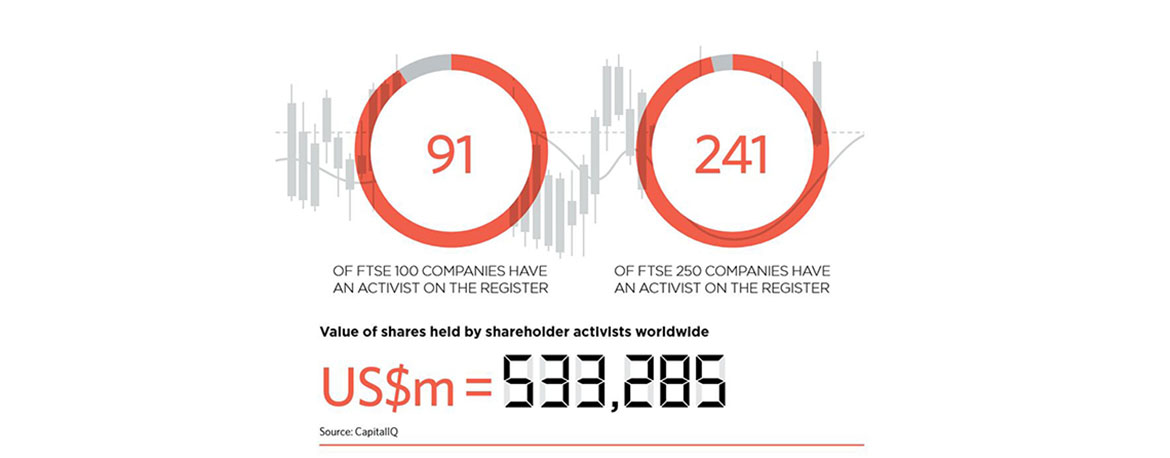Stay in the know
We’ll send you the latest insights and briefings tailored to your needs
Investors, both activist and institutional, took an ever more active stance on M&A in 2018
Shareholders' influence on M&A activity has been on the rise for some time but their increasing willingness to take a stance on even the largest transactions means that boards must, more than ever, consider the views of their investors when contemplating M&A activity.
In part, the influence of shareholders on M&A is due to activist investors, who may agitate for a board to undertake a transaction (for example Whitbread's decision to demerge Costa Coffee and Unilever's disposal of its spreads business), or intervene in a transaction that has been announced with the aim of forcing a buyer to pay a higher price for a target (seen for example on the takeover of SAB Miller by AB InBev), a practice known as bumpitrage.
The refusal simply to follow a board's recommendation is not confined to activist shareholders. In 2018, we saw disgruntled UK investors force the board of Unilever to drop proposals to simplify its corporate structure and move its headquarters to the Netherlands. We have also seen parties forced to renegotiate the terms of a transaction requiring shareholder approval in response to the views of major shareholders.
Boards contemplating M&A in 2019 should therefore sound out key investors pre-announcement where possible, taking care to do so within the confines of any legal and regulatory restrictions. However, even when they do that, shareholders' initial views may change, a risk that is increased where there is a protracted deal timetable as a result of anti-trust or other clearance procedures.
Listed companies and their M&A counterparts will therefore be focused on the steps they can take to protect a deal, such as securing shareholder approval early in the transaction timetable, agreeing a break fee or obtaining binding commitments from shareholders to vote in favour of a transaction.
“ Shareholders are forming their own views around the M&A strategies of listed companies and are more willing to challenge proposed deals. Boards cannot assume that shareholders will simply follow the board’s recommendation. They must take their shareholders’ views into account when contemplating any M&A activity.”
|
Shareholder impact on deals
|

The contents of this publication are for reference purposes only and may not be current as at the date of accessing this publication. They do not constitute legal advice and should not be relied upon as such. Specific legal advice about your specific circumstances should always be sought separately before taking any action based on this publication.
© Herbert Smith Freehills 2024
We’ll send you the latest insights and briefings tailored to your needs